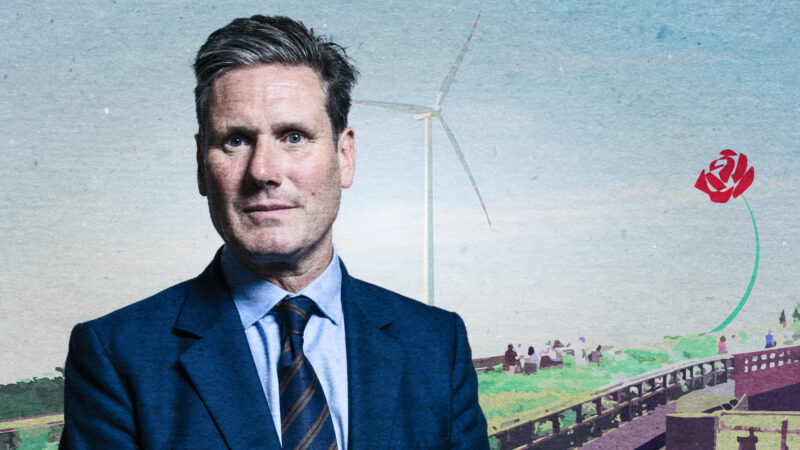
Keir Starmer was widely praised for his PMQs debut last week, interrogating the government over its failure to deliver the Covid-19 testing necessary to save lives and ultimately lift the lockdown. The pundits were agreed: he asked all the right questions.
But in the coming weeks and months, Labour’s new leader must also provide answers. What kind of society should emerge from this pandemic? How can we address the systemic inequalities exposed by this crisis? And how can Labour support communities back to health where we are in power?
As the pandemic devastates families and livelihoods around the world, those answers should present a vision of a transformed society in which people’s health and security come first.
Last year, Labour’s conference adopted the Green New Deal – a programme of investment in green jobs, warmer homes and better transport that could revive a crippled economy. But as physical distancing continues and economists forecast the deepest recession in history, our existing plan for a Green Industrial Revolution doesn’t look radical enough. Starmer’s Labour must now apply the Green New Deal’s principles across our entire economy.
The past two months have transformed what is politically possible. The coronavirus has exposed the lie and the malice behind a decade of austerity, and Tories have admitted what progressives have always argued – that we are only as secure as the most vulnerable among us. For a rare and fragile moment, public health is coming before private profit. And the power of the state has been revealed, with injustices like rough sleeping abolished overnight, and key services like railways nationalised. The test of Keir Starmer’s leadership will be whether those principles become permanent fixtures of our politics.
To achieve that, Labour must use its role in opposition to measure the government’s success not by hollow economic statistics but by the state of the nation’s health. The old exploitative economic system made us vulnerable, exacerbating inequality and climate breakdown by design. It was an unforgivable failure of those in power.
But as leaders around the world grapple with this global existential crisis, some are demonstrating what success might look like. In Amsterdam, the authorities are shifting towards a sustainable economic model that meets everyone’s needs without overexploiting the natural world. It shows that carers, shop workers and fruit pickers – including the migrants who contribute so much to key sectors – must be valued at the heart of a sustainable economy. This approach should inspire Labour’s thinking, from Westminster to local councils.
Covid-19 has underscored how inequality damages people’s health, as working-class people – particularly communities of colour – are more likely to suffer the underlying conditions that put them at risk. With millions now facing unemployment, Labour should work with the trade union movement to demand a massive programme of green jobs and apprenticeships, guaranteeing decent work for all. Polling just this week showed nearly three-quarters of the public would back this kind of scheme.
Voters want support for the people, not bailouts for corporations. Starmer must learn from the mistakes of the 2008 crash and pressure ministers to reject the billionaires who come begging.
As tax exile Richard Branson pleads for a £500m bailout, Labour should be pressing for nationalisation of Virgin Airlines so that flights can be reduced in line with climate targets. Working closely with unions, staff should be supported to apply their skills to new roles in renewables engineering and a dignified care sector, making a positive contribution to the health and security of the nation.
With oil companies on the brink and fundamentally incompatible with a healthy climate, Labour should be arguing for the end of subsidies and a rapid programme of rig decommissioning, with workers supported into the clean energy industries we need for a safe future.
But a post-pandemic Green New Deal must expand its reach beyond workplaces. Where Labour is in power, we must redesign town and city centres – pedestrianising large areas while protecting accessibility, and prioritising walkers and cyclists to keep our air clean. On the national stage, Starmer must campaign for cheaper, greener, more accessible public transport and nationalisation of key services like energy, water and broadband, so the needs of communities are prioritised over corporate profit.
Questioning the government is a crucial part of Keir Starmer’s job in this moment of crisis. His leadership campaign promised another future is possible. To deliver on that pledge and lead us forward, he must present a radical vision of hope. That means imagining and fighting for a society that puts public health and wellbeing before profit, permanently.




More from LabourList
Nudification apps facilitate digital sexual assault – and they should be banned
Diane Abbott suspended from Labour after defending racism comments
Labour campaign groups join forces to call for reinstatement of MPs